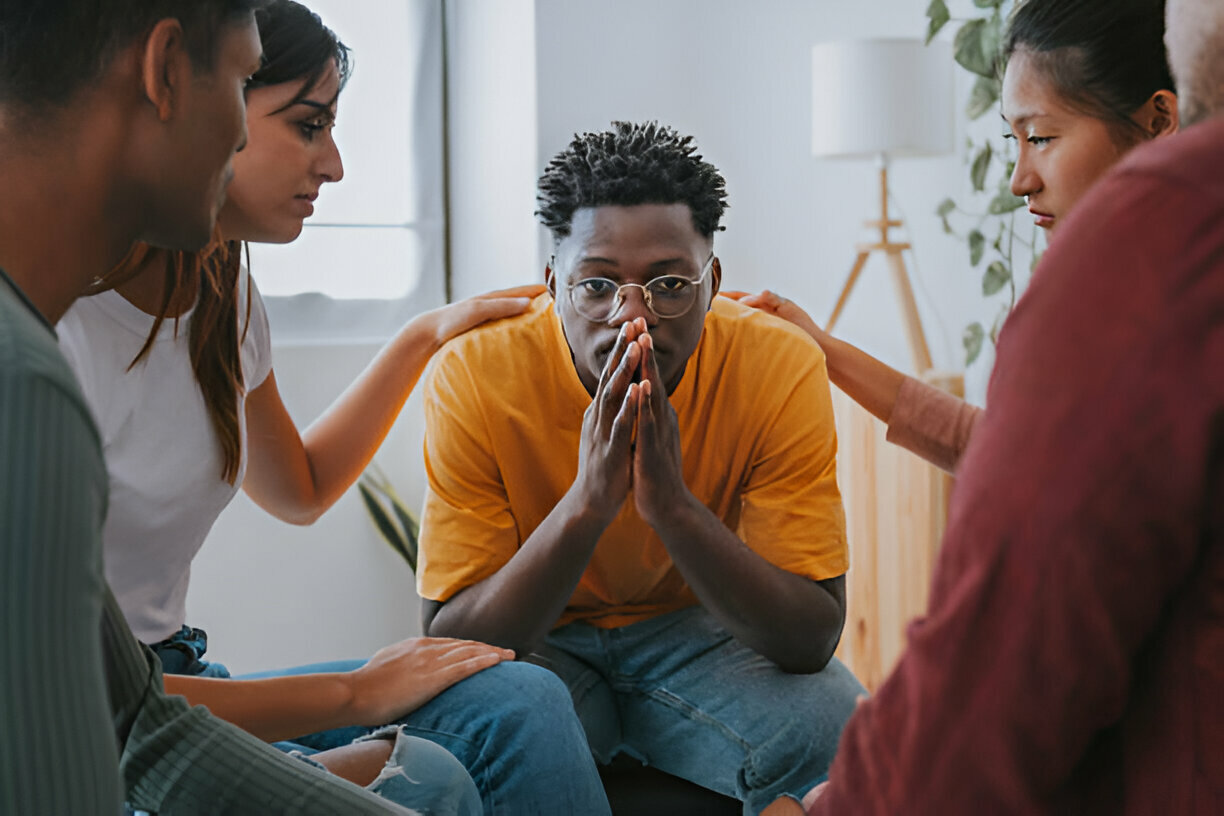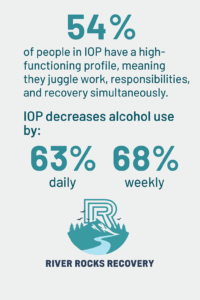I used to wake up and play a familiar game: slap on a smile, pour coffee, and pretend the night before hadn’t happened. No drama. No wreckage. Just another morning of acting “fine.” I was high‑functioning. Reliable. Responsible. And utterly and completely wrecked inside. This is my story—how IOP saved me from becoming the stranger I saw in the mirror—and how it can save you too.
The Quiet Collapse You Hide Even When You Shine
From the outside, I had it together. I landed the job I wanted. I made it to family events. I laughed in the right places. My phone never stopped buzzing. But inside, I was unraveling. The drinking wasn’t glamorous anymore. It was necessary. It was survival. I was riding a wave of guilt and self-talk that told me I was doing just enough to keep from losing it all.
The thing about being “high-functioning” is it masks the pain. It blinds you. You think you can manage forever—until you can’t.
The Morning That Broke Me—And Built Me at the Same Time
I remember that morning like it was marked in ink. I barely opened my eyes before the headache hit. Then the look in the mirror. It wasn’t me. It was my own ghost. My chest felt tighter than the night before. Coffee didn’t help. Texts didn’t help. I tried walking it off. Nothing helped. That’s when I got honest. I typed “IOP near me” into Google. I wasn’t ready to leave my life behind—but I was ready to leave pretending.
That’s when I found River Rocks Recovery’s IOP program in Middletown, Ohio. The information made sense. No overnight stay. No uprooting. Just real help built around my life. It felt like a lifeline—and I grabbed it.
Why IOP Feels Like Rescue Without Sabotage
When people ask about IOP, I can’t help but grin. It’s like getting a custom-fit suit instead of “one-size-fits-all.” You keep your morning alarm, your routines, your responsibilities. But instead of coping alone, you show up for therapy, group support, skill-building. You get support while living your life.
And yes, it works—especially for people who thought treatment would knock everything down. You hold onto what matters while rebuilding what’s broken.
The Uncomfortable Truth: I Was a Mess Who Didn’t Look Like One
I had this identity: the dependable one. I was the friend with the plan, the coworker with the backup copy, the sibling who always responded on time. But I wasn’t dependable—not really. I was available until I wasn’t. I was good with people until the drinking crept in. I was there for my team until “just one more” became three.
IOP stripped that fantasy away. It confronted me with questions I didn’t want to answer. It showed me cracks I was hoping no one else saw. And it gave me permission to be tired, unfinished, still-in-process. That, more than anything else, changed everything.
Scene by Scene: What IOP Did for My Daily Life
Morning
I showed up clearer. No hangover fog. No shame. Before the coffee kicked in, I had progress—reflections, intention, purpose.
Afternoon
Cravings or triggers came. I could name them. I could say them out loud—to my counselor, my peers. I could build a plan in real time.
Evening
It wasn’t just about surviving. I started to actually live. Dinners with family. Deep conversations. Sleep that wasn’t restless.
Sessions That Felt Like Real Work, Not Chores
This wasn’t group for the sake of group. This was therapy tailored to real messes—work stress, relationship tension, the unshakable need to numb, repeated over and over.
In group, I heard someone else say, “I poured a drink after dropping off my kid.” That hit close. That opened the room. That gave me permission to speak. It was the dose of reality and connection I didn’t know I needed.
Private session? I talked about anxiety that felt bigger than the drinking. We worked on skills that weren’t just about sobriety—they were about life.
The Power of Real Flexibility
High-functioning people juggle. We schedule. We memorize calendars. IOP felt like fitting a critical appointment into my planner, not chopping my life in half.
River Rocks Recovery offers both morning and evening sessions. I kept morning meetings. Midday stressors. After-work dinners. This wasn’t treatment off the grid. It was treatment in my grid.
And it worked. My life carried on—but I changed.
The Turning Point: Accepting Imperfect Progress
Spoiler: I didn’t go from binging to perfect overnight. There were slip-ups. Moments I wanted to ghost. Days I thought, “This is too hard.” But IOP taught me something radical: progress isn’t linear. Imperfection doesn’t mean failure.
What mattered was showing up. Again and again. Even when I wouldn’t. That was strength. Relapse didn’t erase progress. It revealed where I could strengthen.
A Handshake with Community, Not Isolation
You don’t know how powerful it is to walk into a room where no one is pretending. They’re tired too. They’re scared too. They’re done but hopeful—just like you. They’re high-functioning, too, by the way. Lives that look good. Lives that were hurting.
There’s amazing relief in that kind of honesty. It doesn’t solve everything. But it builds trust. It builds accountability. And for the first time, I felt less alone.
What Comes After IOP Isn’t a Cliff
When I finished, I didn’t walk off a ledge. I stepped onto ground. River Rocks kept the community alive. Aftercare. Alumni groups. Recovery-buddy checks. I didn’t have to restart again next Monday. I had a plan—and a team.
Better yet: I didn’t lose my life. I gained it.
FAQs: Real Talk for High-Functioning People Who’ve Had Enough
1. I thought only people at rock bottom did IOP.
Rock bottom is optional. IOP is for people tired of faking it. If you’re done pretending, that’s enough.
2. I can’t drop everything. Will this disrupt my life?
Nope. IOP fits in. Sessions are flexible; you stay in life. You don’t pause it.
3. What if I mess up again?
Then you mess up. You go back. You try again. IOP is designed for returners—people who tried before and now know how to come back smarter.
4. How long do I stay in IOP?
Most run 8–12 weeks. But if you need more structure, you get it. If you’re ready for aftercare, you move on. It’s your pace.
5. Will people judge me for being “high-functioning”?
No. The room will get it. Many of us are leading full lives while panicking inside. You’ll find people who understand.
6. What support is in Middletown after IOP?
River Rocks keeps you connected. Alumni programs. Community resources. Peer outreach in Middletown and nearby Hamilton, Ohio.
Your Mirror Moment
If you’re reading this and feeling that weight, that emptiness, that dread the morning after, I’m here to say: you don’t have to be dramatic to need help. You don’t have to burn down your life to rebuild it. Intelligent, capable people reach for a hand, too. They decide they’re done with pretending.
That choice saved me. It can save you.
The mirror stops cracking when you show up.
Call (888) 905-6281 to learn more about our IOP services in Middletown, Ohio.





























